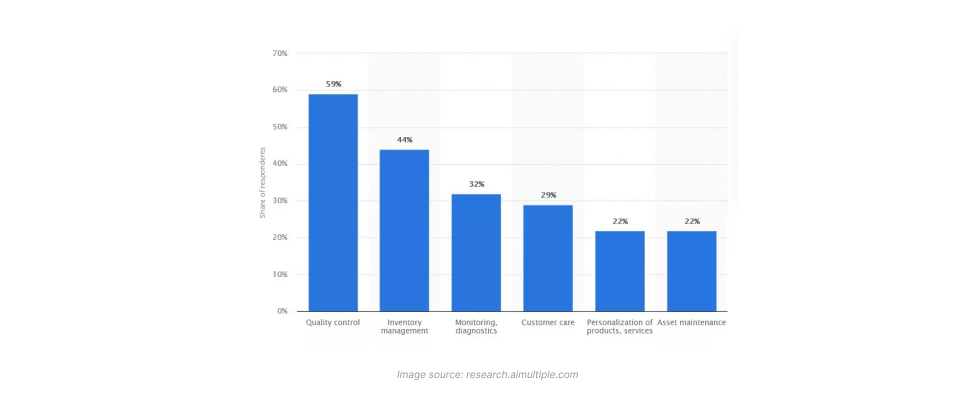There’s a pretty good chance that I didn’t even write this article. I may have just typed in the blog title and asked ChatGPT to do it for me. You don’t know, and you will never know.

Artificial Intelligence (AI), refers to the ability of machines to perform tasks that typically require human intelligence. This includes the ability to learn from data, recognize patterns, and make decisions based on that data. In e-commerce, AI is being used to automate and optimize various processes, such as product recommendations, customer service, and fraud detection.
Benefits of AI in E-commerce
Personalized Customer Experience

Artist- Rina Piccolo
By implementing artificial intelligence in e-commerce, retailers can offer a more personalized shopping experience to their customers. A customer’s browsing and purchase history can be analyzed by AI algorithms to make recommendations for products that are most likely to stir up their interest. Moreover, since visitors are more inclined to return to a website that offers products they are interested in, personalized recommendations can increase customer loyalty.
Chatbots and virtual assistants

One of the key ways that AI is transforming e-commerce is through the use of chatbots, which are powered by AI and machine learning in e-commerce. Chatbots are automated systems that respond to customer inquiries quickly and effectively. A virtual assistant, on the other hand, is a bit more evolved AI system that is capable of handling more difficult tasks like making appointments and placing orders. These tools can assist online retailers in offering round-the-clock customer service and enhancing the overall shopping experience.
Fraud detection and prevention
Fraud detection is another important role of AI in e-commerce. People buy stuff from Amazon, use it, and return it right before the 30-day window (the return period may vary according to products). People run huge scams using these methods. Scammers create a new account for every order and even change the delivery location every time to not get caught.
Fraudulent activity can cost businesses significant amounts of money, and can also damage their reputation. AI-powered fraud detection systems can analyze transaction data in real time, looking for patterns that indicate fraudulent activity. This allows businesses to take action quickly, preventing fraud before it occurs and minimizing the risk of financial loss.
Optimized Pricing and Inventory Management
AI algorithms can analyze sales data to predict demand for products, helping businesses to make informed decisions about stock levels. This can minimize the risk of overstocking, reduce storage costs, and ensure that businesses can meet customer demand. Additionally, e-commerce AI can help retailers optimize pricing strategies.

Competitive advantage
Last but not least, AI can give companies a competitive edge in the cluttered e-commerce market. Businesses can use AI to stay ahead of evolving tastes of customers and adapt quickly to changing market conditions.
Challenges and Limitations of AI in E-commerce
Data privacy and security concerns
Data security and privacy are two of the main questions affecting the use of AI in e-commerce. Businesses may become susceptible to cyber-attacks and data leaks as a direct consequence of the gathering and hoarding of customer data, leading to serious financial and reputational repercussions. Sensitive customer data may also be misused or handled unlawfully, which could result in moral or legal troubles. Businesses must take precautions to secure customer data, such as setting up robust security features.
Technical limitations
The key challenge to the implementation of AI in e-commerce is the innate technical limitations of the technology. There might be restrictions in the data used to train the algorithms because Algorithms are only as good as the data they are trained on.
Complex or ambiguous customer queries may be difficult for AI to handle, which could result in bad customer experiences. For businesses to be likely to succeed, AI technology must be used properly and with awareness of its limitations.
Implementation costs and complexity
AI-powered tool development and implementation demand a significant investment in resources, including technical know-how, and may require system and modification for businesses. Aside from that, regular maintenance and updates might be necessary. Before starting the process, it is crucial for businesses to carefully weigh the advantages and disadvantages of integrating AI into e-commerce and to develop an extensive implementation plan.
Future of AI in e-commerce
Emerging Trends and predictions
AI is likely to have a significant impact on the e-commerce industry. The development of voice assistants, which are becoming more intelligent and capable of carrying out complex tasks, is one noticeable trend. With the increasing use of AI for virtual and augmented reality applications, people will have the chance to view products and experience services in a more immersive and engaging way.
Potential impact on the industry
Businesses that embrace AI are likely to draw more customers and boost sales by offering a more personalized and efficient shopping experience. Adverse effects, however, such as the potential loss of jobs in customer service and other areas, may also occur. Businesses should carefully think about the possible impacts of AI on their operations and develop management strategies for these consequences.
Conclusion
In conclusion, the use of AI in e-commerce has the potential to revolutionize the industry by improving the customer experience, increasing sales and revenue, and providing a competitive advantage. However, businesses must also be aware of the potential challenges and limitations of implementing AI. By carefully evaluating the benefits and risks of AI, businesses can leverage this technology to drive growth and success.
If you’re thinking about implementing AI in your online store, make a strategy for integrating AI that takes into account both its potential advantages and disadvantages. You can unlock AI’s full potential to help push growth and success for your e-commerce business by using it thoughtfully and strategically. The role of AI in e-commerce is only going to become more important in the future.
FAQs
1. How AI is used in online retail
AI improves online retail by assisting customers with chatbots and virtual assistants for personalized recommendations. Owners benefit from AI’s inventory management, fraud detection, and demand forecasting.
2. How is AI a game changer?
AI is a game changer in retail and e-commerce by personalizing the shopping experience, improving efficiency, and making data-driven decisions. It helps retailers understand customer behavior and preferences, optimize pricing, and improve inventory management. Automating tasks frees up employees to focus on more strategic initiatives, increasing business efficiency.
3. What are the two uses of AI in eCommerce?
Two uses of AI in eCommerce are personalized product recommendations and fraud detection. AI analyzes customer data for personalized recommendations based on purchase and browsing history. This increases customer satisfaction and drives sales. AI also detects fraudulent activity like fake reviews and credit card fraud to mitigate risk and protect the business.
4. Why AI is the future of eCommerce?
AI is the future of eCommerce because it benefits retailers and customers. Automating tasks drives innovation and growth while accurate product recommendations improve the shopping experience. As AI develops, it becomes more important for the industry.

Chirag Bhavsar Founder & CEO, Coduzion
Chirag Bhavsar is Founder and CEO at Coduzion. Gusty, Passionate, and a Sports freak. Loves to spend time reading financial books and playing outdoor games as soon as He is away from his desk. He always loves to take on new challenges and get good at them.










